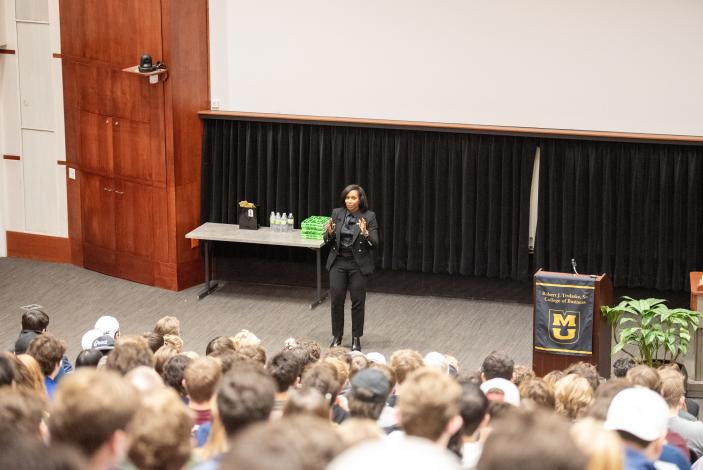
Business ethics expert Kelly Richmond Pope speaks to packed house

Trulaske students explored the importance of ethics in accounting during the annual Richard M. Orin Ethics Symposium.
You order one luxury handbag. The company sends you two. What would you do? Contact the company? Send it back? Keep it for yourself? Re-sell it? Gift it to a friend?
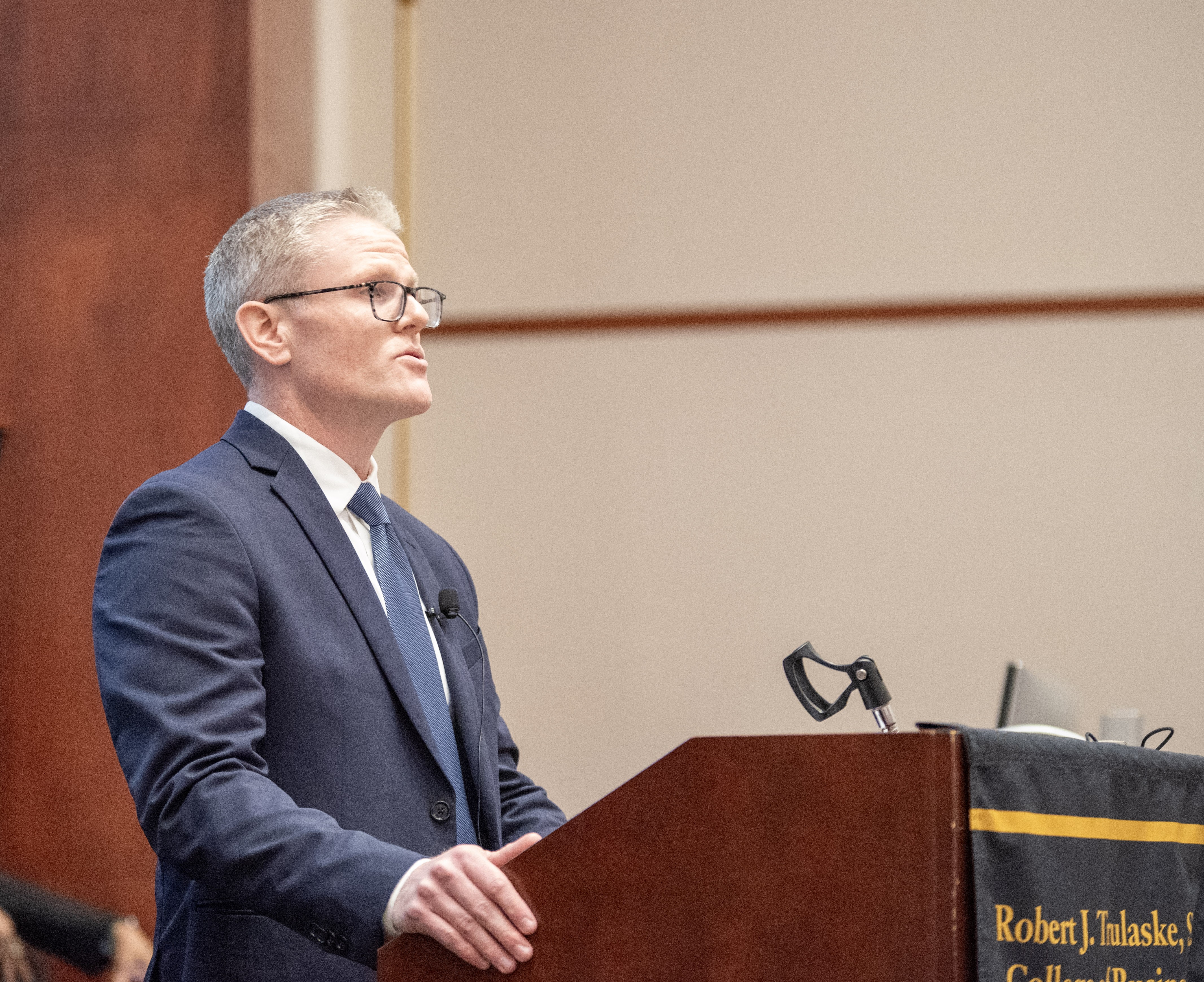
This was one of several ethical dilemmas posed before a packed auditorium of students, faculty and staff from the University of Missouri’s Robert J. Trulaske, Sr. College of Business during the recent Richard M. Orin Ethics Symposium. Established in 1997, the annual event is hosted by Trulaske’s School of Accountancy to honor the late Richard M. Orin, BSBA ’49, who was committed to promoting professional responsibility and ethics in the field of public accounting.
“The Orin Ethics Symposium gives students an opportunity to see how ethical decision-making applies beyond the classroom,” said Matt Glendening, interim director of Trulaske’s School of Accountancy. “It connects theory and intuition to real-world business challenges and helps students appreciate how integrity and accountability shape professional success.”
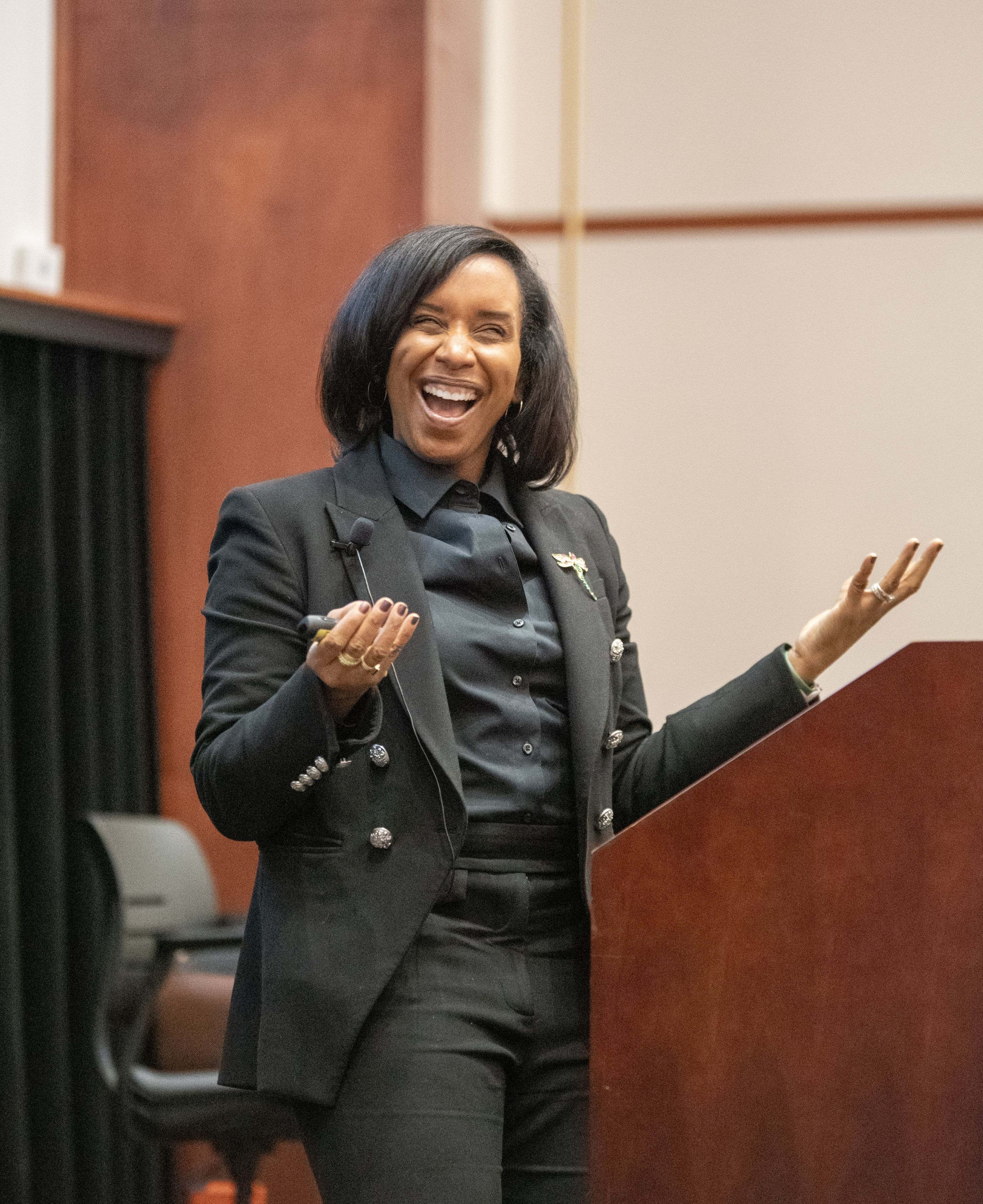
Trulaske students had the opportunity to hear from keynote speaker Kelly Richmond Pope, PhD, CPA, an accounting professor from DePaul University who has explored the devastating impact of compromised ethics in her documentary, “All the Queen’s Horses.” Pope also provided expert commentary for several episodes of MSNBC’s “Superheist.”
The interactive presentation explored how factors like omnipotence, cultural numbness and justified neglect can gradually lead to unethical behavior, often without participants realizing what they’ve done. Pope shared stories she’s collected first-hand from professionals who’ve destroyed their careers, lost their families, and even faced federal prison sentences due to unethical choices.
“When you think about ethics, sometimes you don’t realize an ethical situation is staring you in your face,” Pope observed. “That’s a dangerous situation.”
Pope also discussed the Bystander Effect, the idea that the more people know about an unethical behavior, the less likely it is to be reported.
“We all think if we see something bad happen, we’re going to say something,” Pope said. “But research shows we don’t do that. We think someone else will report it.”
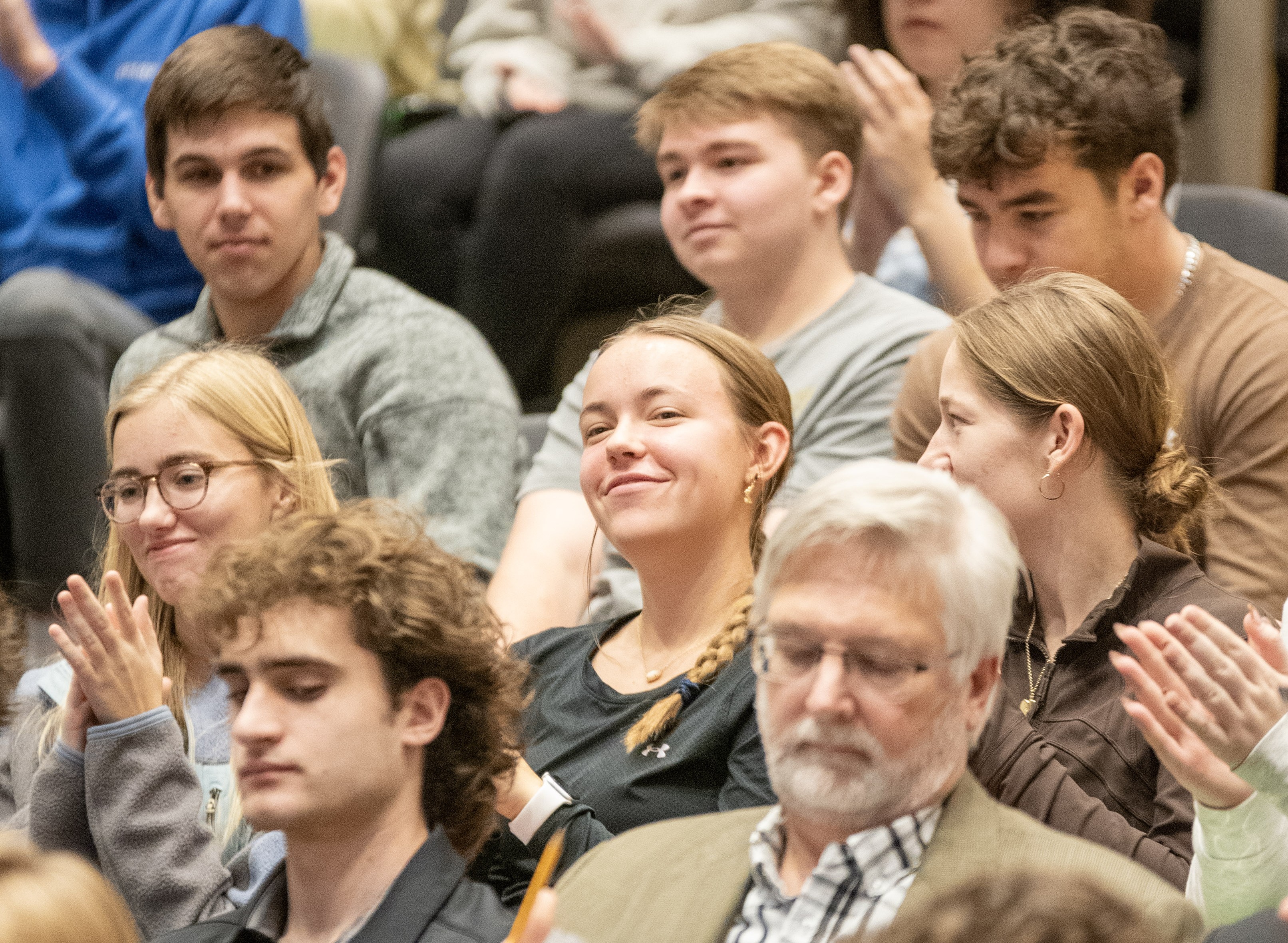
The symposium is made possible through Orin’s generosity and vision, along with the continued support of his daughter, Rhonda Eisenstein, and grandson, Eric Weissmann, who were both in attendance. Sijie Yao, director of the Paul and Lynn Ann Vogel Master of Accountancy and Integrated Program, said that events like the Orin Ethics Symposium provide students with a unique opportunity to interact with leading experts in their field and introduces them to new career options.
“These experiences broaden their perspective and help them make more informed decisions about their future studies and professions,” Yao said.
The symposium also provided students an opportunity to earn points toward Trulaske Edge, an innovative program that helps students develop professional competency by participating in special programming and events.
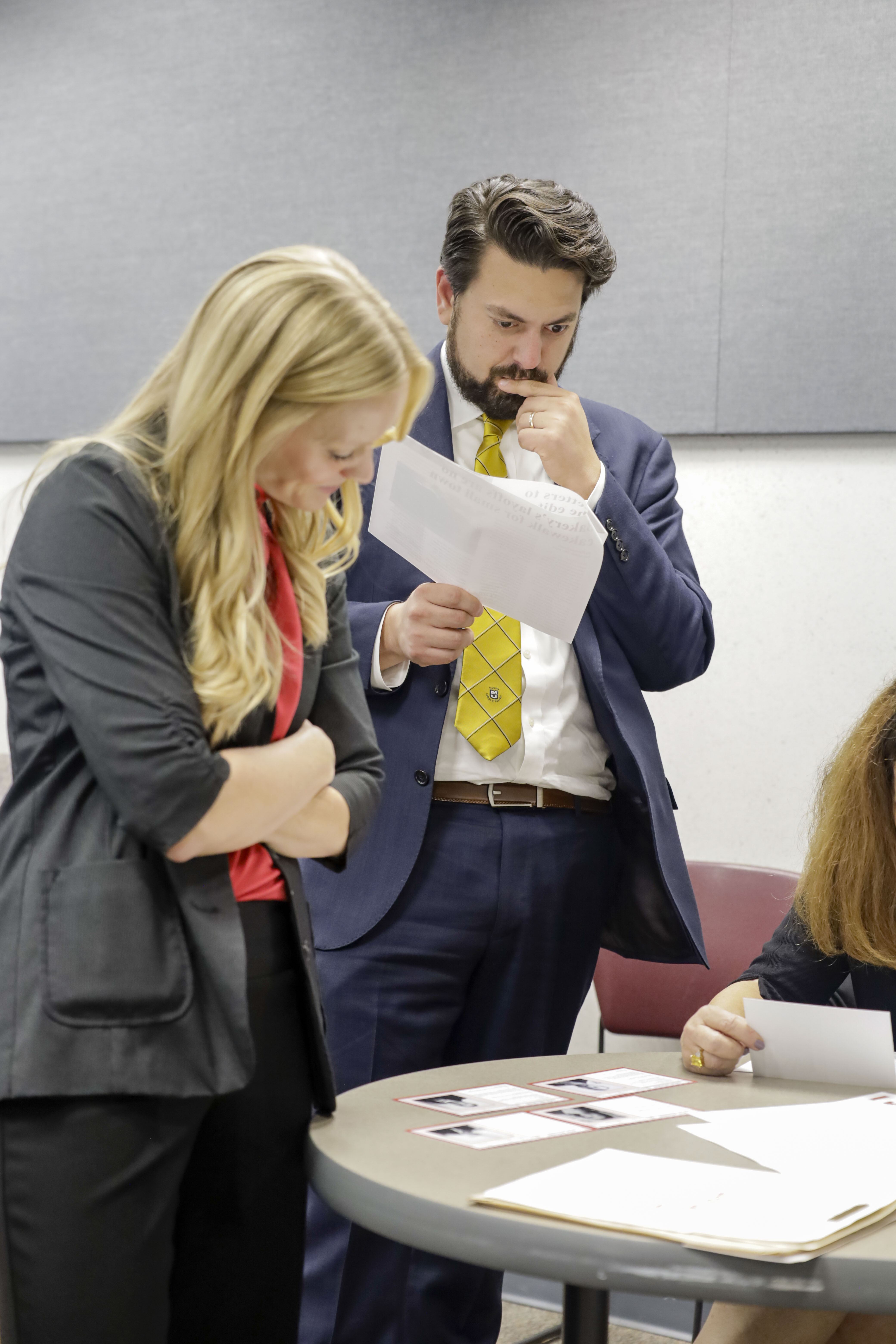
“I hope students left with a deeper understanding that ethics isn’t just a compliance issue. It’s a mindset that guides leadership and builds trust,” Glendening said. “Having an ethics-based mindset is important because making unethical decisions in situations that seem gray or low stakes can eventually lead to failures that upend careers, personal lives, and even entire organizations.”
Pope encouraged students to stay connected with their faculty at the Trulaske College of Business after graduation. Maintaining relationships with trusted mentors can help professionals stay grounded, she said.
“They care and they’re always going to give you the best advice,” Pope said.
Accountancy student Anna Marren said that the symposium was a helpful reminder that auditors are called upon to be "professional skeptics" and to "trust but verify."
"If an auditor avoids these tasks in order to 'build trust with the client,' they’re avoiding an essential job function and providing opportunities for the client to commit fraud," Marren said. "Yes, it is important to trust the client – humans in general tend to operate with a general sense of trust – but auditors also need to do their jobs and protect investors."
When it comes to ethical decision-making, Pope offered students one other important reminder: “Your reputation arrives before you do.”
Mizzou’s Robert J. Trulaske, Sr. College of Business prepares students for success as global citizens, business leaders, scholars, innovators and entrepreneurs by providing access to transformative technologies, offering experience-centered learning opportunities and fostering an entrepreneurial mindset.